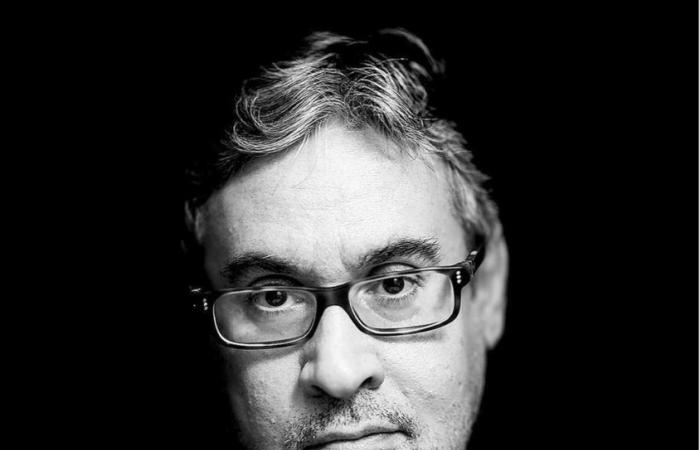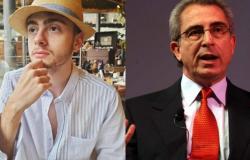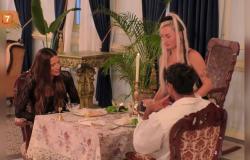He acknowledges that his editors were scared when they saw the volume of his manuscript, written, as the word goes, by hand and for three years, but he asserts that there were no cuts or manipulations in the original of this monumental novel in which he portrays the eventful life of Spanish artists, writers and journalists in Paris occupied by the Nazis.
He returns to the context of World War II, which he has already gone through in other books. What attracts you to this time?
Above all, this anomaly that a country like France, which was a great military power, surrenders with hardly any resistance. That kind of submission… because really German domination, until the invasion of the Soviet Union took place, which is when Stalin ordered the communists to start attacking the Germans, was peaceful, it did not obtain any type of resistance for more than a year. Then, of course, there is the issue of that whole world of artists and writers who are trapped in the city and who have to develop their work in very difficult conditions.
And how do you get to the complicated, committed and dark lives of those Spanish artists?
Researching for a book, a biography of Ana María Martínez Sagi, titled Right to Dream, I discovered that there are some wonderful archives in France, especially police archives, in which it is possible to find a lot of little-known documentation about many of the Spaniards who lived in Paris. That was captivating. It was the moment when I decided to start writing this novel. It has been a long-time job, but above all based on great documentation work.
It certainly doesn’t seem easy to document 1,600 pages…
Archives, newspaper archives, memory books of the people who were there in those years… even the chronicles of the correspondents who wrote from Paris provide a lot of information about that city in a state of emergency that was the French capital at that time.
“We began to be afraid of freedom of expression”
Is the cover of the book with the door to the Cabaret of Hell a declaration of intentions of what its pages hide?
It is one of the many settings of Paris at the time that I portray in the novel, but I thought that that cover was especially expressive of the grotesque and ferocious tone that the novel has. In it the macabre and the grotesque walk hand in hand.
The story stars Fernando Navales, a character who also appeared in The masks of the hero, Why a bad guy as a narrative voice?
It was a perspective that added a lot of spice to the story. A person who, on the one hand, seems abject, unbearable, but who at the same time is attractive. I was thinking about the protagonists of Scorsese’s films who apparently are scoundrels, scoundrels, but who mysteriously end up liking us and even assuming their point of view.
He talks about things that today are unspeakable with a torn and brutal naturalness. Do we have too thin skin?
In recent years we are developing a kind of asepsis or distancing ourselves from the darkest realities of life, which I think is telling us about a time in which we are beginning to be afraid of freedom of expression. We are filling life with preventions, fears, censorship… Life is becoming too much like a pantomime and, specifically literature, is becoming a testing ground for suffocating ideologies that try to constrain us to certain topics and this seems to me terrible in general and especially terrifying in literature. We must rebel against this. Literature has always been an area of freedom, but it is increasingly common for the writer to amputate himself, to censor himself.
But now you can’t write about any topic?
Apparently yes, but I’m afraid not. The impositions of what is politically correct mark literature too much.
“It has been a long-time job, but above all based on great documentation work.”
What are the consequences of jumping over these barriers?
That you become a reprobate, a writer viewed with caution by the right-thinking, but the writer’s mission is not to be applauded by the right-thinking. A writer has to be uncomfortable and dare to mention what no one says, stir, shock, disturb.
Do you think you have achieved that with The night has a thousand eyes?
Well, it is a risky novel in which I give my all and in which I write with absolute dedication both at the expressive level and in the conception of the work. And, yes, also without fear of mentioning many topics that are considered taboo today.
Is a human being better known by what he hides than by what he reveals?
Life is like an iceberg in which what is interesting for others to know appears, but there are entire continents of our lives that remain hidden, hidden from the vast majority. And a literary work must try to delve into all that hidden inner world, because human beings are largely made up of everything that we hide.
“We are developing a kind of asepsis or distancing ourselves from the darkest realities of life.”
He has written this novel by hand. What effect does this have on the final text?
Handwriting is slower, more selfless because it requires greater concentration. Mark the way you write because the slower you do it, the more likely you are to concentrate a greater significant load in the words, a greater dose of thought… It is more careful writing. This does not always have to be for the better, but if it is, it is very enriching.
When he started writing he says he broke with his world. How has the return been?
It’s been almost three years. In any case, I cannot conceive of writing a book without unrestricted delivery. There is a lot at stake and I don’t know how to write any other way.






